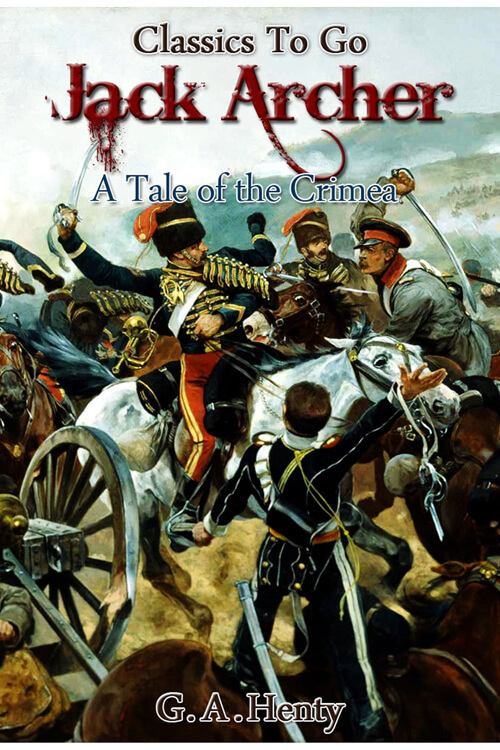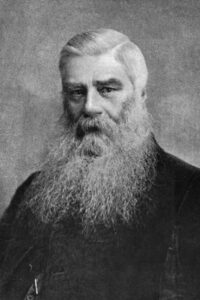
Jack Archer, A Tale of the Crimea
The first day of the term cannot be considered a cheerful occasion. As the boys arrive on the previous evening, they have so much to tell each other and are so full of what they have been doing, that the chatter and laughter are as great as upon the night preceding the breaking-up. In the morning, however, all this is changed. As they take their places at their desks and open their books, a dull, heavy feeling takes possession of the boys, and the full consciousness that they are at the beginning of another half-year’s work weighs heavily on their minds.
It is true enough that the half-year will have its play, too, its matches, with their rivalry and excitement. But at present it is the long routine of lessons that is most prominent in the minds of the lads who are sitting on the long benches of the King’s School, Canterbury.
As a whole, however, these have no great reason for sadness. Not more than a third of them are boarders, and the rest, who have in truth, for the last week, begun to be tired of their holidays, will, when they once get out of school, begin to choose sides for football, be glad that the term has again commenced.
“So your brother is not coming back again, Archer?” one of the boys said to a lad of some fifteen years old, a merry, curly-haired fellow, somewhat short for his age, but square-shouldered and sturdy.
“No. He is expecting another six months to get his commission and is going up to town to study with a coach. My father has lodged the money for him, and hopes to get him gazetted to his old regiment, the 33d.”
“What is he going to a coach for? There is no examination, is there? And if there was, I should think he could pass it. He has been in the sixth for the last year.”
“Oh, he is all right enough,” Archer said. “But my father is sending him to an army man to get up military drawing and fortification. Dad says it is of no use his going on grinding here at Greek and Latin, and that he had much better spend the time, till he gets his commission, in learning something that may be of use to him. I wish I had done with Latin and Greek too, I’m sure they’ll never be of any use to me, and I hate them.”
At this moment the conversation between the boys was abruptly broken off by Archer being called up by the class master.
Read or download Book
G. A. Henty
Biography.
George Alfred Henty (8 December 1832 – 16 November 1902) was a prolific English novelist and war correspondent. He is best known for his historical adventure stories that were popular in the late 19th century. His works include The Dragon & The Raven (1886), For The Temple (1888), Under Drake’s Flag (1883) and In Freedom’s Cause (1885).






